In 1947, agriculture contributed 50 per cent to the national income and employed more than 70 per cent of the nation’s workforce. As of 2019, agriculture contributed 16.5 per cent to the national income while the sector still employs more than 42 per cent of the workforce. The political parties that governed the nation for so long sang paeans to farmer welfare while the income levels of farmers stagnated and farmers were driven towards penury, distress and suicides. They only paid lip-service to successive recommendations of panels which argued for opening up the country’s agricultural markets. It is deeply unfortunate that when our prime minister has demonstrated the will to implement these long-pending transformative reforms, opposition parties are resorting to misinformation and fear-mongering to score political points.
Indian agriculture has been characterised by fragmentation due to small holding sizes, weather dependence, production uncertainties, huge wastage and market unpredictability. This makes agriculture risky and inefficient with respect to both input and output management. These challenges need to be addressed by way of realising higher productivity, cost-effective production, and efficient monetisation of the produce to increase farmers’ income. The Narendra Modi government has taken various steps in this direction, for example, the implementation of the Swaminathan committee’s recommendation regarding fixing MSP at least 50 per cent profits on the cost of production, increasing the agri budget by more than 11 times in the past 10 years, establishing e-NAM mandis, an Agriculture Infrastructure Fund of Rs 1 lakh crore under the Atmanirbhar Bharat Package, the scheme for the formation of 10,000 FPOs, etc.
The landmark farm bills passed on September 20 will create an ecosystem where farmers and traders enjoy the freedom of choice of sale and purchase of farming produce to facilitate remunerative prices to farmers through competitive alternative trading channels. This will promote barrier-free inter-state and intra-state trade and commerce of farming produce outside the physical premises of markets notified under state agricultural produce marketing legislation. In this way, they will facilitate farmers with more buyers for their produce at their doorsteps.
The farm bills also lay the ground of a legal framework for fair and transparent farming agreements between farmers and sponsors. This framework will facilitate greater certainty in quality and price, adoption of quality and grading standards, linkage of farming agreements with insurance and credit instruments to transfer the risk of market unpredictability from the farmer to the sponsor and also enable the farmer to access modern technology and better inputs.
These recommendations have been made several times in the past, including by the Swaminathan Committee, which suggested the removal of the mandi tax, creation of a single market and facilitating contract farming.
Even the Congress manifesto in 2019 said that changes in the APMC Act will be made so that all the impediments on the export and inter-state trade of agricultural produce are removed. They had also promised to repeal the Essential Commodities Act and establish farmers’ markets, where farmers can sell their produce without any controls.
The Congress manifesto for the Punjab assembly elections too had suggested that the APMC act will be upgraded so thatfarmers get access to inter-state and international markets; an Agriculture Production Board will be formed, which will be responsible for contract farming/land leasing; and a legislation to regulate farmers’ contracts to protect farmers’ interests will be enacted.
When all this is being done by the farm bills passed on September 20, the Opposition has resorted to a malicious misinformation campaign suggesting that the bills intend to remove MSP, take away the lands of our farmers and make them slaves to corporations. Nothing could be farther from the truth.
The PM and agriculture minister have clarified several times that fixed MSP and government purchase at MSP will continue and that the farm bills are not related to the MSP. In fact, the MSP for paddy has gone up 2.4 times and for wheat 1.7 times in the past five years of our government. These pieces of legislation are only to protect farmers’ interests. Farmers will get better prices as no taxes will be levied on the trade of agricultural produce in the trade area as defined in the bills. Also, mandis established under APMC Acts of states will continue to work and these bills don’t override state APMC Acts.
In order to ensure that our farmers are not shortchanged or cheated by anyone, the bills have several safeguards such as the prohibition of sale, lease or mortgage of farmers’ land and farmers’ land is also protected against any recovery. Farming agreements cannot be entered into, if they are in derogation of the rights of a sharecropper. Farmers will have access to flexible prices subject to a guaranteed price in agreements. The sponsor has to ensure the timely acceptance of delivery and payment of produce to farmers and farmers’ liability is limited to only the advance received and cost of inputs provided by the sponsor. Disputes will be resolved through a Conciliation Board, to be constituted by the sub-divisional magistrate (SDM), failing which an aggrieved party may approach the concerned SDM for the settlement of the dispute. The SDM can order the recovery of the amount in dispute, impose penalties and also pass an order restraining the trader for the trade and commerce of scheduled farmers’ produce for such a period as deemed fit.
These farm bills will bring transformative changes in our agricultural sector and reduce wastage, increase efficiency, unlock value for our farmers and increase farmers’ incomes. At the same time, traders and other stakeholders will get the opportunity to get access to better produce and develop additional services that can be useful to local farmers, like seed/soil testing facilities and cold storages. We must not allow falsehood and political opportunism to overshadow the key measures and mechanisms enunciated through this landmark reform, which finally puts our farmers first.

The quieter work of governance, the steady, week after week clearing of bottlenecks - this cumulative push is what I mean by Refo...

PM Sh Narendra Modi Ji has done the unthinkable in Bihar and it will change the grammar and lexicon of Indian politics for the ti...
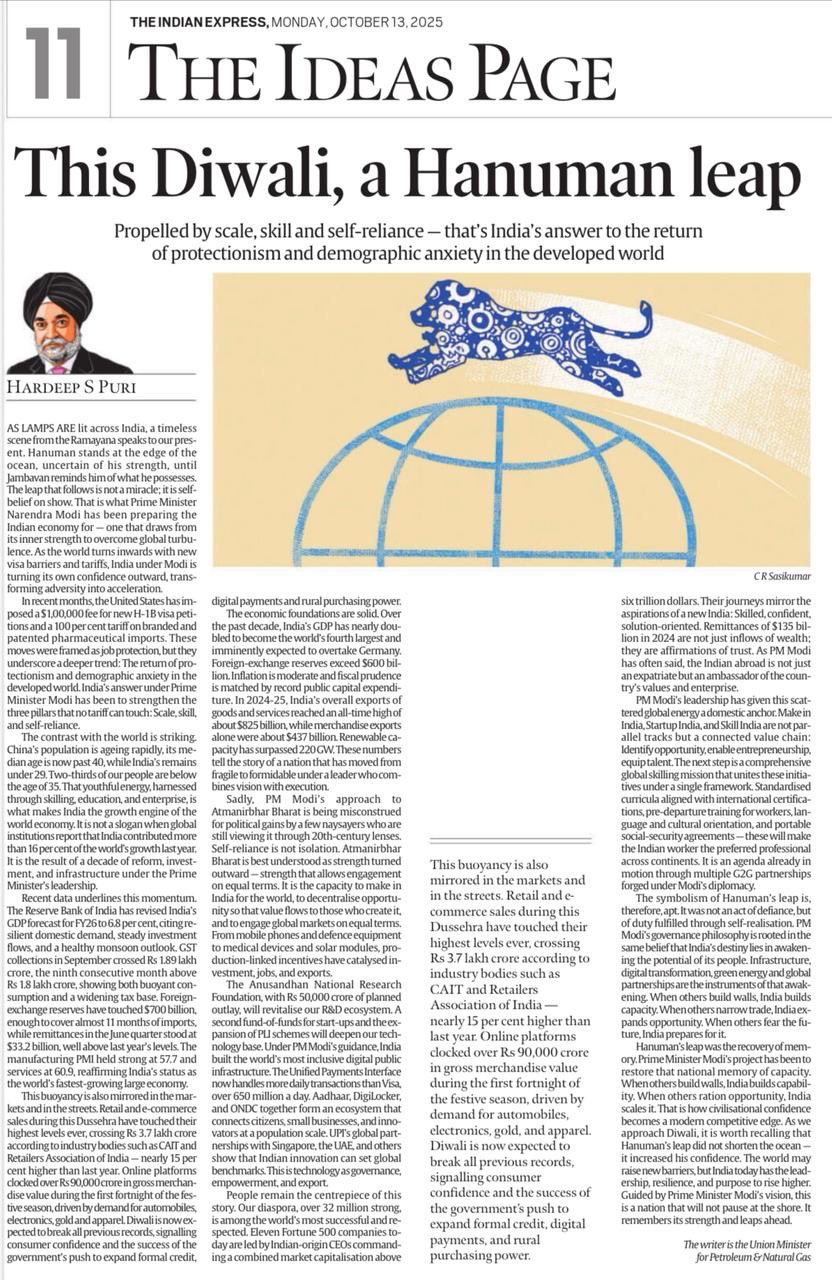
As the world passes through a period of geopolitical turmoil and uncertainty, India, under the visionary & decisive leadership of ...
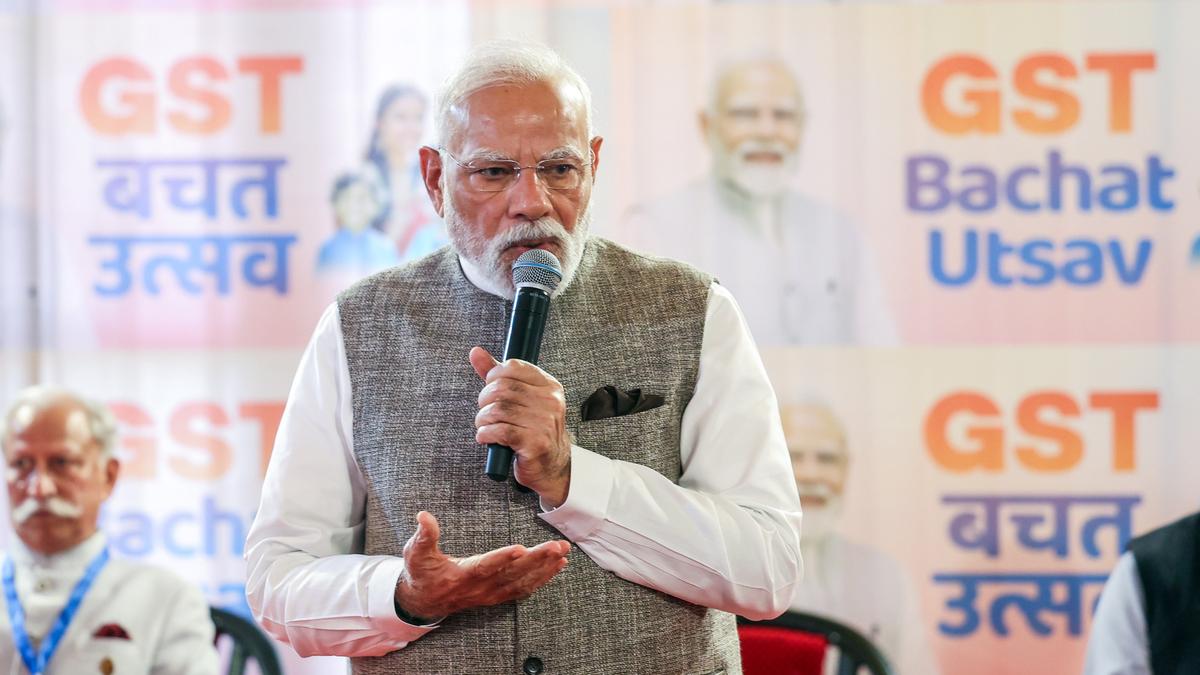
The Prime Minister’s professionalism and work ethic are what make the difference on the ground Praise has been showered on Pr...
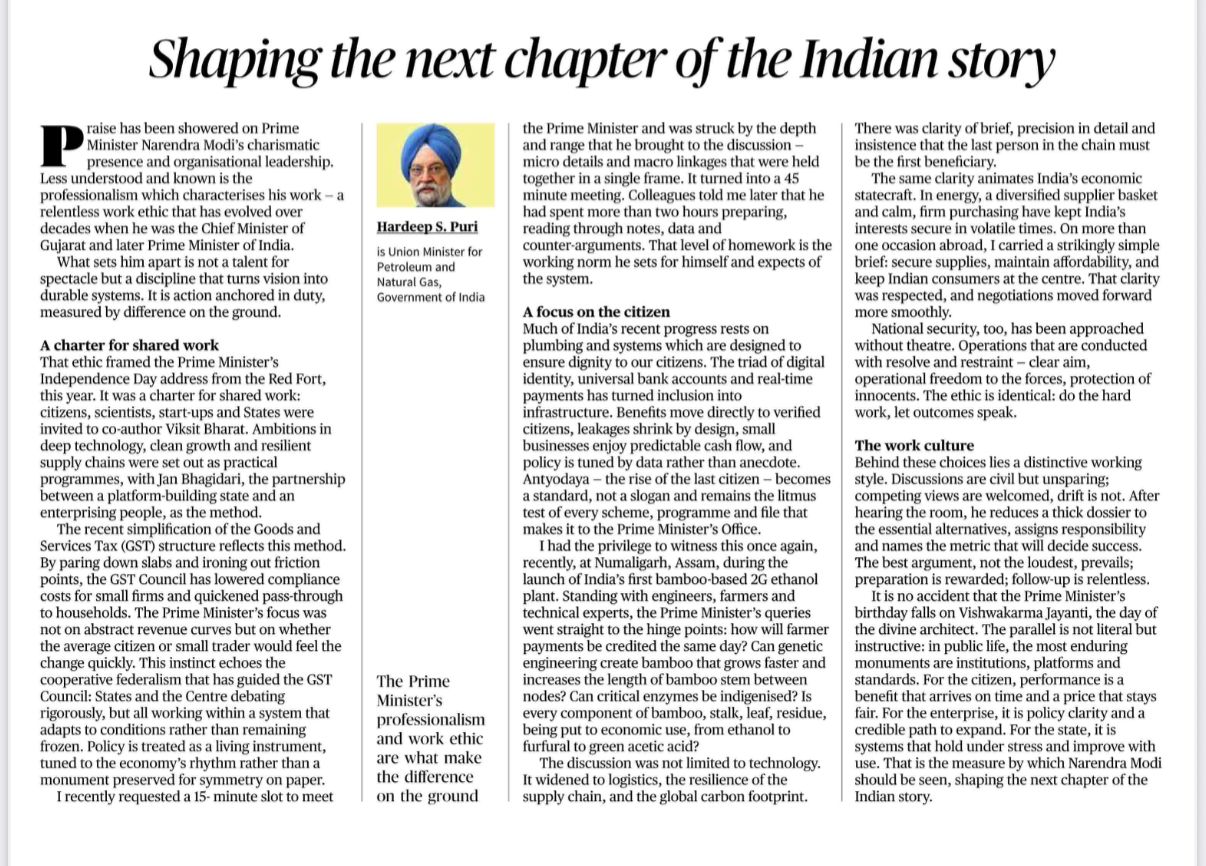
Shaping the next chapter of the Indian story!...
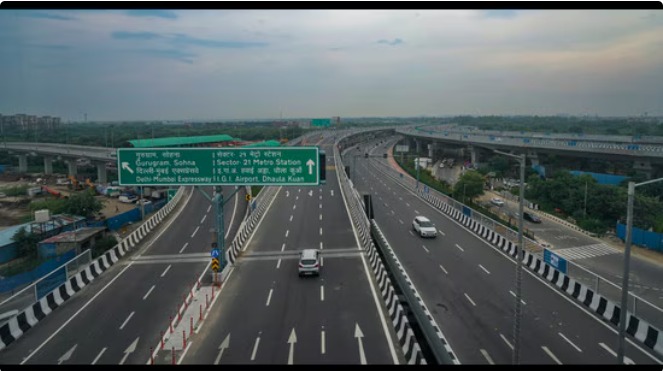
Indian cities are again on that path to being modern yet humane, ambitious yet inclusive, global in outlook yet rooted in our valu...

India’s fact-rich story of resilience, growth and energy security will silence the ‘global doubters’ who call it a ‘dead e...
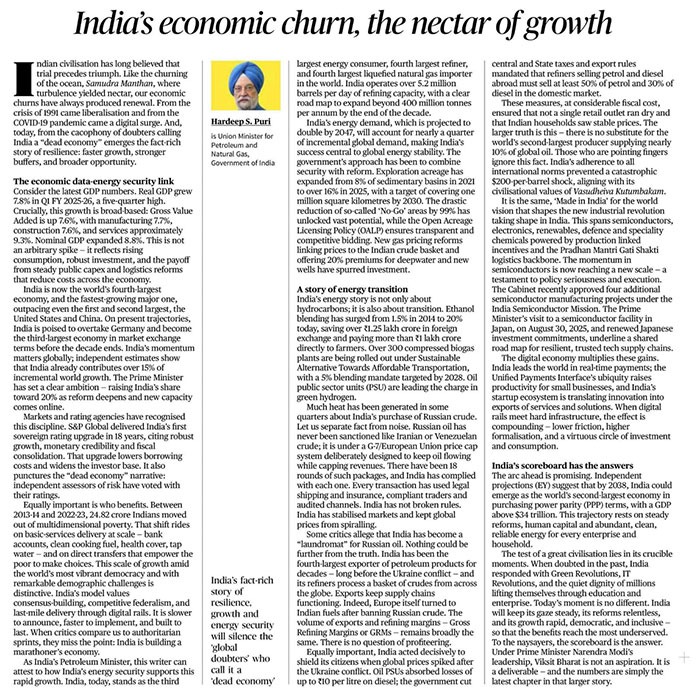
The test of a great civilisation lies in its crucible moments. When doubted in the past, India responded with Green Revolutions, I...
.jpeg)
विकसित भारत के लिए प्रधानमंत्री श्री नरेंद्र मोद...